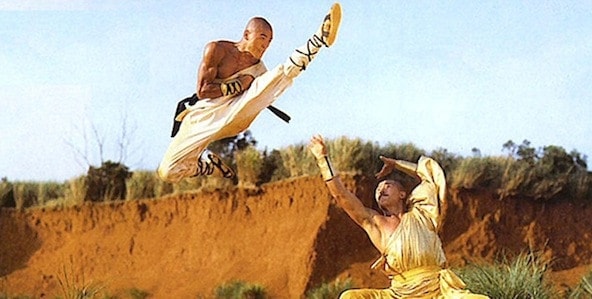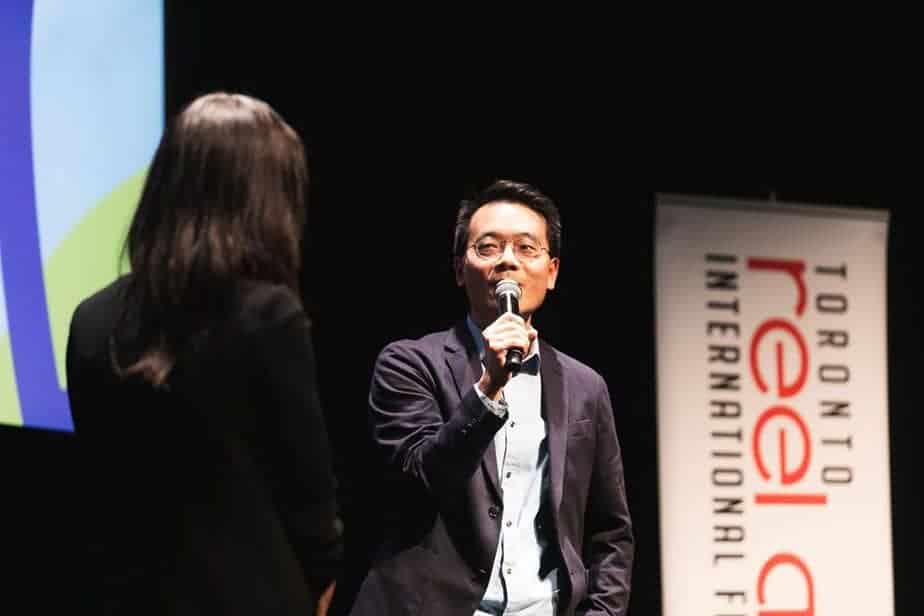Transgender representation is already rare in the media, let alone femme-to-masculine (FTM) transgender folks – and, even more than that, gay FTM individuals. This year at Sundance, however, Jules Rosskam and his acting leads Theo Germaine and Aden Hakimi premiered “Desire Lines,” a hybrid docu-fiction on gay FTM individuals.
“It is kind of a taboo subject, an open secret [within the trans FTM] community. Every year, I was waiting for someone else to make a film about it. And then every year, I'd look at the festival circuit and be like ‘nope, nope, nope,” laughed director Rosskam. “In 2019, I was finally like, ‘Okay, I guess I'm making this film.'”
Like its peers in the NEXT program, “Desire Lines” is not typical in structure. It weaves together interviews with FTM individuals, re-enactments of Grindr conversations, and a narrative storyline where Ahmed (played by Hakimi), a middle-aged Iranian American trans man, peruses the archive of trans activist Lou Sullivan with youthful archivist Kieran (played by Germaine) by his side. The film blurs the lines between filmic genres and gender, past and present, as Ahmed ruminates upon his experiences within a bathhouse.
“Like any binary, [the boundary between fiction and narrative] is a false one,” Rosskam said. Echoing trans theorist Eliza Steinbock, he noted, “Something that I like in myself and a lot of other trans people in the community is that trans people are kind of shimmering, a shimmering between a past, present, and future, and a shimmering of gender.”
“What I want is for audiences to think about what those expectations are and why they have them. Documentary is just a different frame through which to think through the material you're seeing, and for a lot of people, that's a frame that claims to tell the Truth with a capital T. But the problem for me is that ‘the Truth' is almost always a singular truth. This is a more holistic approach to telling the story, by bringing in fiction, documentary, and the archival, because they each bring with them a different ways to the lives and experiences we ‘re exploring. To tell this kind of a trans story, it has to be experimental or non-normative. To give justice, we have to find new ways to speak, or allow these stories to speak.”
In fact, Germaine and Hakimi recounted that for them, as trans individuals playing FTM characters being vulnerable with one another, the project at times felt “like an incredibly positive experience,” but “intense.” “I related to the character [I play] a lot, as someone who is obsessed with preserving queer history, with people being seen, and has daddy issues,” Germaine laughed. “A big selfish thing about this project is that I needed it so badly.”
I asked the two how they maintain their separation from the project. “Boundaries, therapy, communication, humor, taking a break, and really speaking up for yourself on set,” Germaine summarized. “Really emphasize the therapy and boundaries.”
“We're all pro therapy and boundaries,” Hakimi agreed. Even though Hakimi appears decades older in the film than he is in real life, Hakimi said, “I'm bringing myself to work because I can't completely separate from it. And I want to separate myself from it, because I'm thinking about [the acting job]. Letting go requires trust, and I am not the only one giving myself to set.”
The trust was mutual, the three recounted – between the actors (their characters' on-screen chemistry was unplanned, apparently!), the actors and crew, and the actors and Rosskam. In the final scene, Aden's character drifts through a utopian bathhouse populated by other nude trans men, and sensuously kisses a younger, handsome peer. A predominantly queer, trans crew and a supportive hair, makeup, and wardrobe department was essential for the cast to feel comfortable. Extras and their intimacy coordinator were also cast from the trans community.
“I've never been topless on camera,” Hakimi confessed. “There are going to be so many people who have known me who don't know I am trans, and now are going to see me topless, with my post-COVID body, but I didn't want to bring my own shit into it. It's just a vulnerable project. It starts with vulnerability first, and this happens,” Hakimi gestured to Rosskam, “Because of who is at the helm.”
For Rosskam, “Desire Lines” was the biggest project he had ever taken on. He notes that there was “almost no crossover” between those working on the film's narrative and nonfiction threads. Germaine and Hakimi did not see any of the interviews and vice versa; the interviewees did not read the scripts. Shooting took place all over the United States, too. Even though Hakimi and Rosskam live only 15 minutes away from each other in New York, the narrative portion was shot in Chicago, the backdrop of Rosskam's graduate student days. Rosskam also rattled off all the places he found his interviewees: Massachusetts, New York, Illinois, Oregon, Washington, not to mention his own desktop screen.
“The archive is everywhere, right?” Rosskam said, in response to my surprise. “The film itself is an archival document. The truth doesn't just exist out there. It's constructed for us to find.”

I asked them about their relationship to Lou Sullivan, whose archives they dive into in the narrative portion of the film. “I am just astounded by the kind of courage Lou Sullivan had to be a gay, trans man in the ‘70s. It's fucking bananas,” Rosskam said. Though Rosskam and Hakimi haven't learned about Sullivan until later in life, they recognized Sullivan's contributions to the representation of trans men and the radical nature of the television episode shown in the film. “It's the fact that [the show host] holds [Sullivan's] hands,” Hakimi affirmed. “The fact that he knows that [Sullivan] has AIDS and still warmly extends his own hand first, is so powerful and loving. My heart breaks. The whole of society benefits from challenging men to be better.”
Film experimentation did not come without their own challenges, however, especially in light of the writers' and actors' strikes in the US last year. Should the film have been considered narrative, all of its constituents would have been considered actors, and with it, actors' labor laws. As a part of the strikes, union actors like Hakimi could not post behind-the-scenes footage, or even mention wrapping the film on social media. Local legislation, like the bathroom bill dropped on Utah legislature in January or the hundreds of other anti-trans bills passed yearly, make it further difficult for trans folks to live their day-to-day lives in public.
“I hope projects like [“Desire Lines”] inspire people to be a little bit louder. We [trans men] provide wonderful things to society,” Hakimi concluded. “There's so much about trans trauma. This film is not just about trans joy, but pleasure.”
“Desire Lines” won the Special Jury Award for NEXT at Sundance, and is set to premiere in theaters in February 2024.
















